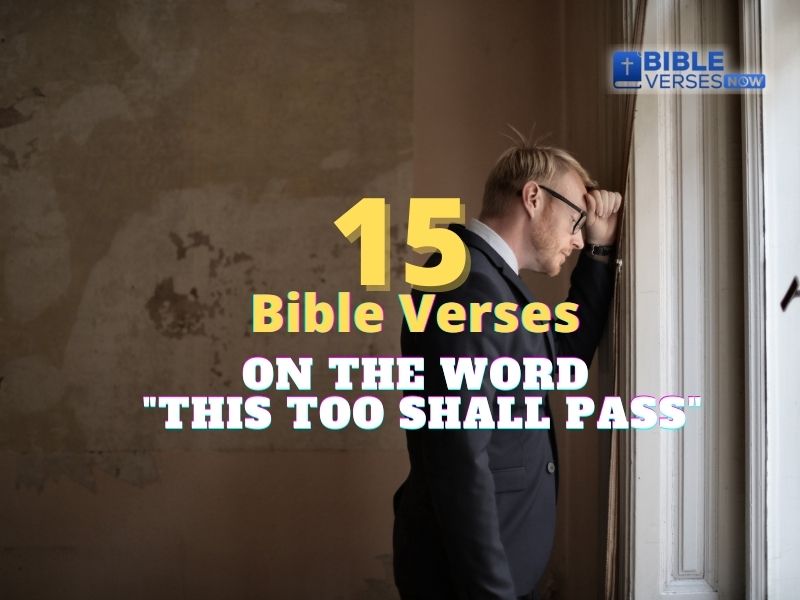When it comes to the topic of marriage, the Bible has much to say, encompassing diverse perspectives, stories, and guidance on this vital institution. In this article, we embark on a journey to explore where exactly the Bible discusses marriage.
We will delve into the Old Testament, which predates the birth of Jesus Christ, and examine the teachings and narratives that lay the foundation for the Judeo-Christian understanding of marital relationships. Additionally, we will navigate the New Testament, focusing on the teachings of Jesus Christ and the early Christian community, to gain a deeper understanding of their perspectives on marriage.
Throughout our exploration, we will encounter a rich tapestry of stories, commandments, parables, and letters that shed light on the biblical view of marriage. From the divine institution of marriage in the book of Genesis to the apostle Paul’s teachings on love and commitment, the Bible provides a wealth of wisdom, guidance, and reflections on this sacred covenant.
Where In The Bible Does It Talk About Marriage
Marriage is a social and legal union between two individuals, typically recognized by society and governed by laws. It is a commitment made between two people to share their lives together, emotionally, spiritually, and physically. Marriage serves as the foundation for building families, fostering love, companionship, and the procreation of children.
The significance of marriage is profound, as it represents a sacred bond between two individuals. It provides a framework for support, love, and partnership, allowing couples to navigate the challenges of life together. Marriage offers a sense of stability and security, creating a nurturing environment for personal growth, emotional well-being, and the raising of children.
The Bible as a Source of Guidance for Marriage
The Bible holds a central place in the lives of many believers and provides essential guidance for various aspects of life, including marriage. It offers principles, teachings, and examples that can shape and inform a couple’s understanding and practice of marriage.
For Christians, the Bible is viewed as the inspired Word of God, containing divine wisdom and guidance. It offers insights into the nature of relationships, the roles of husbands and wives, and the qualities that should characterize a healthy marriage. It provides moral and ethical guidelines that can help couples navigate challenges and make decisions aligned with God’s will.
Throughout the Bible, marriage is depicted as a sacred institution, designed and established by God. It is viewed as a reflection of the relationship between Christ and the Church, illustrating the depth of love, commitment, and self-sacrifice. The Bible’s teachings on marriage emphasize the importance of faithfulness, love, respect, and mutual submission between spouses.
By turning to the Bible as a source of guidance for marriage, couples can gain insight into God’s design for relationships, understand the principles that promote a thriving marriage, and seek His wisdom in making decisions that honor Him and benefit their union. The Scriptures provide a moral compass and a source of encouragement, offering hope and direction for couples as they navigate the complexities of married life.
Marriage in the Old Testament
The book of Genesis provides the foundational account of the creation of marriage. In Genesis 2:18-24, God recognizes that it is not good for man to be alone and creates a suitable partner for Adam, Eve. God forms Eve from Adam’s rib and presents her to him, establishing the first marital union. This narrative highlights the complementary nature of male and female and emphasizes the unity and oneness that marriage brings.
God’s Plan for Marriage
Throughout the Old Testament, marriage is portrayed as a sacred covenant established by God. It is intended to be a lifelong commitment between one man and one woman. God’s plan for marriage involves the union of two individuals who are to support, love, and care for one another. The marital relationship is characterized by faithfulness, mutual respect, and the sharing of joys and sorrows.
Examples of Marriages and Family Dynamics in the Old Testament
1. Adam and Eve: As mentioned earlier, Adam and Eve’s union in the Garden of Eden serves as the archetype for marital relationships. They were created as equal partners, with Adam being the first man and Eve being the first woman. Their story emphasizes companionship, unity, and the complementary roles of husbands and wives.
2. Abraham and Sarah: Abraham and Sarah are significant figures in the Old Testament. Their marriage endured various challenges, including infertility, yet they remained faithful to one another and to God’s promises. Their story highlights the importance of trust, patience, and reliance on God’s faithfulness in marriage.
3. Isaac and Rebekah: Isaac and Rebekah’s marriage is another example in the Old Testament. Their union was arranged by God’s providence, and they exemplify loyalty and devotion. Despite facing difficulties, they remained committed to each other and played integral roles in God’s plan for the nation of Israel.
4. Jacob and His Wives: Jacob’s story in the book of Genesis presents a complex picture of marriage. He married Leah and Rachel, who were sisters, as well as their maidservants, Bilhah and Zilpah. The narrative highlights the consequences of deception and favoritism within marriage, as well as the challenges that arise from polygamous relationships.
These examples, among others in the Old Testament, provide insights into different marital dynamics, including love, faithfulness, struggles, and the consequences of choices within marriage. They serve as both positive and cautionary tales, guiding readers to understand the principles and values that should shape their own marriages.
Marriage in the New Testament
Jesus’ Teachings on Marriage
1. Marriage as a Lifelong Commitment: In Matthew 19:4-6, Jesus refers back to the creation account in Genesis and emphasizes that God’s intention for marriage is a lifelong commitment. He states that what God has joined together, no human should separate. Jesus upholds the sacredness and permanence of marriage.
2. The Importance of Faithfulness and Love: Jesus teaches about the significance of faithfulness and love within marriage. In Mark 10:6-9, He reiterates the idea that marital unity involves a deep bond between a husband and wife, emphasizing that they should become one flesh. Jesus highlights the importance of selfless love, sacrificial service, and the pursuit of unity in marriage.
3. Jesus’ Views on Divorce: Jesus addresses the issue of divorce in Matthew 19:3-9 and Mark 10:2-12. He teaches that divorce was permitted in the Mosaic Law due to the hardness of people’s hearts, but it was not God’s original plan. Jesus emphasizes that divorce should only be considered in cases of sexual immorality and warns against divorce for trivial reasons.
Paul’s Teachings on Marriage
1. The Roles and Responsibilities of Husbands and Wives: In Ephesians 5:22-33, Colossians 3:18-19, and 1 Peter 3:1-7, Paul provides instructions regarding the roles and responsibilities of husbands and wives. He teaches that husbands are to love their wives sacrificially, as Christ loved the Church, and wives are to submit to their husbands as the Church submits to Christ. These teachings emphasize mutual respect, selflessness, and the establishment of loving and harmonious relationships within marriage.
2. Mutual Submission and Respect: In Ephesians 5:21, Paul encourages believers to submit to one another out of reverence for Christ. This verse sets the foundation for the mutual submission and respect that should exist within marriage. Paul emphasizes that marriage is a partnership where both spouses should honor and serve one another.
The Metaphor of Marriage as Christ and the Church
1. Ephesians 5:22-33: Paul employs the metaphor of marriage to describe the profound relationship between Christ and the Church. He emphasizes that just as husbands are called to love their wives sacrificially, Christ loved the Church and gave Himself up for her. This metaphor highlights the selfless love, commitment, and unity that should characterize the marital relationship.
2. The Symbolism of Love and Unity: The metaphor of marriage as Christ and the Church signifies the deep spiritual union and intimacy between Christ and believers. It underscores the symbolism of love, unity, and the unbreakable bond between Christ and His followers. This imagery serves as a powerful reminder of the profound spiritual implications of marriage and the importance of reflecting Christ’s love in marital relationships.
The teachings of Jesus and Paul in the New Testament provide guidance on lifelong commitment, faithfulness, love, mutual submission, and responsibilities within marriage. They emphasize the profound spiritual significance of marriage as a reflection of Christ’s love for the Church and provide a framework for healthy, loving, and Christ-centered relationships within the marital union.
Marriage and God’s Design for Relationships
Marriage is seen as a reflection of God’s love and covenant with humanity. In Ephesians 5:31-32, the apostle Paul refers to marriage as a profound mystery that represents the relationship between Christ and the Church. The sacrificial love, commitment, and faithfulness within marriage mirror God’s love and His everlasting covenant with His people. Marriage provides an opportunity for spouses to demonstrate God’s love to one another and to the world.
The Purpose of Marriage
Marriage serves multiple purposes within God’s design. Firstly, it provides companionship and support. In Genesis 2:18, God recognized that it was not good for Adam to be alone, and He created Eve as a suitable partner. Marriage offers emotional, spiritual, and physical support, allowing couples to navigate life’s joys and challenges together.
Secondly, marriage is intended for procreation and the continuation of the human race. God’s command to “be fruitful and multiply” in Genesis 1:28 highlights the importance of the family unit in society. Marriage provides a stable foundation for raising children and nurturing them in a loving and secure environment.
Additionally, marriage is a context for personal growth and sanctification. Through the challenges and joys of married life, individuals have the opportunity to develop virtues such as selflessness, patience, forgiveness, and sacrificial love. Marriage serves as a refining process that shapes individuals into becoming more Christ-like.
Challenges and Obstacles in Marriage
Marriage is not without its challenges and obstacles. Recognizing and addressing these challenges is vital for maintaining a healthy and fulfilling marital relationship. Here are a few common challenges:
1. Communication and Conflict Resolution: Effective communication is essential for resolving conflicts and maintaining a strong marital bond. Communication breakdowns, misunderstandings, and ineffective conflict resolution strategies can strain relationships. Learning to communicate openly, listen empathetically, and seek resolution with humility and respect is crucial.
2. Intimacy and Trust: Intimacy encompasses emotional, physical, and spiritual connection between spouses. Building and maintaining trust is essential for deepening intimacy. Trust can be compromised by past hurts, betrayals, or unresolved issues. Cultivating transparency, honesty, and vulnerability can help restore and strengthen trust within the marriage.
3. Infidelity and Forgiveness: Infidelity can severely damage a marriage, causing immense pain and broken trust. Rebuilding a marriage after infidelity requires a commitment to seeking forgiveness, healing, and rebuilding trust. Both spouses must be willing to work through the pain, seek counseling if needed, and extend and receive forgiveness to restore the marital bond.
Navigating these challenges requires a commitment to ongoing growth, mutual support, and seeking guidance from God and wise counsel. Through forgiveness, grace, and a shared commitment to the covenant of marriage, couples can overcome obstacles and experience restoration and healing.
Throughout this discussion on marriage in relation to the Bible, several key points have emerged:
1. Marriage is defined as a lifelong commitment between a man and a woman, designed and established by God.
2. The Old Testament provides examples of marriages and family dynamics, highlighting the importance of faithfulness, trust, and the challenges faced within marital relationships.
3. Jesus’ teachings emphasize the sacredness of marriage, the significance of lifelong commitment, and the importance of love, faithfulness, and unity.
4. Paul’s teachings elaborate on the roles and responsibilities of husbands and wives, emphasizing mutual respect, selflessness, and the metaphor of marriage as Christ and the Church.
5. Marriage reflects God’s love and covenant, serves multiple purposes including companionship, procreation, and personal growth, and presents challenges such as communication, trust, and forgiveness.
Conclusion
Couples are encouraged to seek God’s wisdom and guidance in their marriages. By cultivating a personal relationship with God, regularly studying His Word, and seeking His guidance through prayer, couples can invite His presence and guidance into their relationship.
God desires to be actively involved in our marriages, providing wisdom, strength, and grace to navigate challenges, overcome obstacles, and experience the fullness of His purpose for marriage.
Marriage is a journey that requires continual growth, humility, and a commitment to honoring God’s design. By relying on His guidance and leaning on His grace, couples can build a strong foundation for a lifelong, fulfilling, and Christ-centered marriage.






